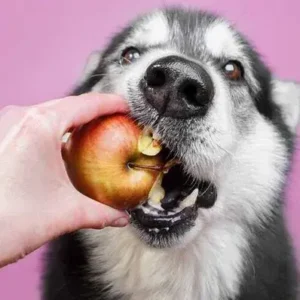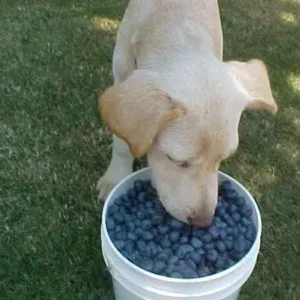Nutritional Benefits of Cashews for Dogs
In small quantities, cashews offer some nutritional benefits:
- Healthy Fats: Promote a shiny coat and healthy skin.
- Protein and Fiber: Support muscle health and digestion.
- Antioxidants: Help boost the immune system.
- Vitamins and Minerals: Cashews contain magnesium, zinc, and vitamin K, which support bone health and overall well-being.
How Many Cashews Can Your Dog Eat?
Treats, including cashews, should make up no more than 10% of your dog’s daily diet, with the remaining 90% coming from a well-balanced dog food. The appropriate portion size depends on your dog’s size and weight.
Below are general guidelines for safe cashew consumption based on dog breed categories.
It’s always best to consult your veterinarian before introducing new foods to your dog’s diet.
| Dog Size | Weight Range | Example Breeds | Cashew Limit |
| Extra-Small | 2-20 lbs | Yorkshire Terrier, Chihuahua, Pomeranian, Pug, Shih Tzu | 1-2 cashews |
| Small | 21-30 lbs | Basenji, Beagle, Miniature Australian Shepherd | 2-3 cashews |
| Medium | 31-50 lbs | Basset Hound, Border Collie, Australian Cattle Dog, Siberian Husky | 5-6 cashews |
| Large | 51-90 lbs | Pit Bull, German Shepherd, Labrador Retriever, Australian Shepherd | 10-12 cashews |
| Extra-Large | 91+ lbs | Newfoundland, Bernese Mountain Dog, Saint Bernard, Great Pyrenees | 12-18 cashews |
Can Dogs Eat Cashew Butter?
Cashew butter is safe for dogs as long as it doesn’t contain harmful additives like xylitol, macadamia nuts, or nutmeg. For a healthier option, consider making homemade plain cashew butter to ensure it’s free from unsafe ingredients.
Risks and Potential Dangers of Feeding Cashews to Dogs
While cashews have some benefits, they also come with potential risks.
High-Fat Content
Cashews are high in fat, which can lead to obesity and pancreatitis if consumed too often. Dogs with a history of pancreatic issues should avoid cashews altogether.
Salt and Seasonings
Many packaged cashews are salted or flavored with garlic, onion, or other spices—all of which can be toxic to dogs. Always opt for plain, unsalted cashews.
Choking Hazard
Whole cashews can pose a choking risk, especially for small dogs or puppies. It’s best to crush or chop cashews before offering them.
Allergic Reactions
The likelihood of your dog being allergic to cashews is very low. However, dogs may have an intolerance to the high fat content in nuts, which can lead to vomiting or diarrhea. It’s important to note that intolerance and allergies are not the same.
How to Safely Feed Cashews to Your Dog
If you want to treat your dog to cashews, follow these safety tips:
- Choose plain, unsalted cashews.
- Limit portions to one or two cashews occasionally.
- Crush or break cashews into small pieces to prevent choking.
- Monitor your dog for any signs of digestive upset.
Signs of a Negative Reaction to Cashews
If your dog eats too many cashews or reacts poorly to them, you may notice:
- Vomiting or diarrhea
- Lethargy or unusual behavior
- Swelling, itching, or hives (signs of an allergic reaction)
- Difficulty breathing (seek emergency vet care)
If any of these symptoms appear, stop feeding cashews and consult your veterinarian.
Healthy Alternatives to Cashews for Dogs
If you’re looking for safer, healthier treats for your pup, consider:
- Dog-safe nuts: Unsalted peanuts (in moderation), almonds (small amounts).
- Fruits and vegetables: Carrots, apples(seedless), blueberries.
- Commercial dog treats: Designed specifically for canine nutrition.





